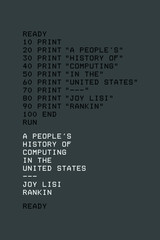


Today it is memorialized on t-shirts and in (paper) card games, hearkening to a pixelated time before the PlayStation and the Xbox. OREGON, as the program was known, became wildly popular with students across the United States during the 1980s. Working with rudimentary text-based computer interfaces, they typed “BANG” to hunt and answered questions-“Do you want to eat (1) poorly (2) moderately or (3) well?”-by keying in a number. They had to manage supplies, battle illness and foul weather, and hunt for food to continue along the Trail. In this game, players could imagine they were journeying from Missouri westward to the Pacific Ocean, in search of better lives. Rankin offers a radical precedent for a more democratic digital culture, and new models for the next generation of activists, educators, coders, and makers.In 1971, three student-teachers in the Minneapolis public school system created the computer game The Oregon Trail for students in their American history class. These unsung pioneers helped shape our digital world, just as much as the inventors, garage hobbyists, and eccentric billionaires of Palo Alto.īy imagining computing as an interactive commons, the early denizens of the digital realm seeded today’s debate about whether the internet should be a public utility and laid the groundwork for the concept of net neutrality. Joy Rankin draws on detailed records to explore how users exchanged messages, programmed music and poems, fostered communities, and developed computer games like The Oregon Trail.

Their networks were centered in New Hampshire, Minnesota, and Illinois, but they connected far-flung users. But throughout the 1960s and 1970s a diverse group of teachers and students working together on academic computing systems conducted many of the activities we now recognize as personal and social computing. The invention of the personal computer liberated users from corporate mainframes and brought computing into homes. Silicon Valley gets all the credit for digital creativity, but this account of the pre-PC world, when computing meant more than using mature consumer technology, challenges that triumphalism.


 0 kommentar(er)
0 kommentar(er)
